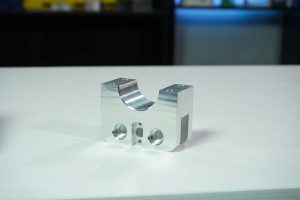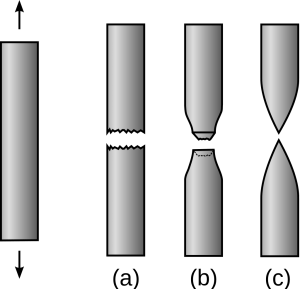
Computer Numerical Control (CNC) machining is an advanced form of machine automation that allows for precise and efficient fabrication of various materials like metal, plastic, or wood. With its increase in popularity, the search for innovative processes and materials to enhance its production performance has become a widespread quest. One product revolutionizing this industry is titanium nitride.
Titanium nitride, often known by its formula TiN, is not your ordinary material; it’s recognized as super-hard ceramic material, typically utilized as a coating due to its high hardness, excellent heat resistance and superb corrosion-proofing qualities. Because of these beneficial characteristics, it has found significant use in improving tools used in CNC machining operations.
Producing titanium nitride involves chemical vapor deposition – a method imaging the complexity of CNC machining itself. Its production process requires precise handling of extreme temperatures and vacuum conditions where the raw compounds undergo gaseous reaction to produce titanium nitride. The resultant fine layer exhibits properties such as extreme hardness, wear-resistance, and frictional coefficient reduction making it desirable in multiple industries, especially CNC machining.
CNC machines cut through several tough materials like iron, steel, and other metals, which quickly degrade conventional cutting tools. Here’s how titanium nitride comes into play to revolutionize these processes.
The property that makes titanium nitride extremely useful in CNC machining is its surface hardening ability. When deposited on the surfaces of traditional cutting tools, it significantly improves their performance by creating a barrier against wear and tear. This increases the lifespan of these tools thereby driving down costs associated with replacing damaged equipment. Not only does titanium nitride make these tools more durable but also its lower friction co-efficient reduces energy usage during the manufacturing process, translating to additional cost savings.
Top-level sharpening efficiency is another remarkable benefit of titanium nitride in CNC machining. The extraordinarily stiff nature of what is often referred to as the ‘gold standard’ in cutting tool materials keeps tools sharp for longer periods allowing them to effectively slice through even the toughest of materials with ease. This results in higher quality finished products, which meet customer satisfaction levels.
The heat resistance property of titanium nitride makes it an invaluable asset in the CNC machining world. Machining processes generate a considerable amount of heat that can cause potential damage to both the equipment and the product being fabricated. With a ceramic-like layer of titanium nitride on their surface, though, these metal tools can withstand that high temperature, thus preventing thermal deformation during operation.
Beyond improving CNC machining capabilities, using titanium nitride has wider environmental benefits too. Less frequent need to replace tools and reduced energy usage not only cut costs but also minimize production waste and reduce factory carbon emissions – contributing to sustainable manufacturing.
In conclusion, in the realm of computerized fabrication technology advancement, where precision and efficiency are key, tools fortified with titanium nitride prove superior. Producers who incorporate this innovative material into their operations can expect to reap numerous benefits ranging from cost savings through prolonged tool lifespan, superior-quality end-products due to maintained tool sharpness, increased energy efficiency due to lower friction properties, and overall contribution to environmental sustainability. Titanium nitride coated tools truly serves as gold in the context of CNC machining.



